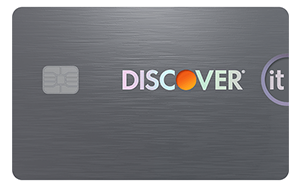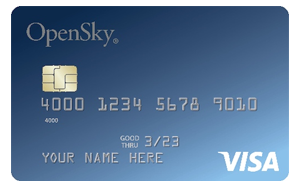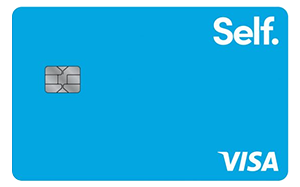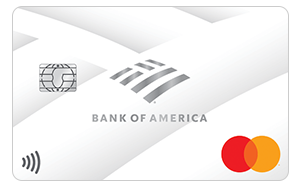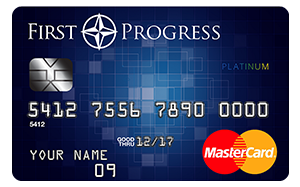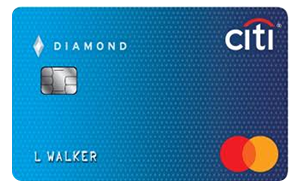As you’re probably aware, you never signed up to get a credit score, but if you have any credit or loans, you’re assigned one anyway. Actually, you’re assigned several: you now have 28 credit scores at FICO alone. With the introduction of UltraFICO, you can now have yet another one.
The major difference? You actually need to sign up to get an UltraFICO credit score. FICO believes you’ll do so, because if you’ve been financially responsible, you’ll get a higher UltraFICO credit score than your normal FICO score.
That, in turn, will give you more options to get loans or credit cards at cheaper interest rates. But is there a catch?
Table of Contents
What is UltraFICO?
UltraFICO is a new type of credit score produced by the Fair Isaac Corporation (FICO) in collaboration with Finicity (a fintech company) and Experian (a major credit bureau).
These companies developed UltraFICO for two main reasons:
- To expand access to credit: UltraFICO promises that people with otherwise bad credit scores are actually safe to lend to, provided the data they submit shows a history of financial responsibility.
- To make money: FICO earns money by selling your credit score to lenders (when they check it). By expanding access to credit and inventing new credit scores, they help lenders make more money by extending more loans, and in turn, FICO makes money by selling more credit scores.
How does UltraFICO work?
With UltraFICO, you’re able to link non-traditional types of financial data into FICO, including your checking, savings, and money market accounts. These accounts don’t show on your credit report, meaning they can’t be factored into your other credit scores.
Using the data you linked, UltraFICO then measures: 1
- How long your accounts have been open
- How recently and frequently you make bank transactions
- How much cash you usually have on hand
- How often your bank balance is positive
While FICO will still generate a base credit score based on your credit report, they’ll then factor in this other data to generate your UltraFICO credit score.
If the data you submitted suggests you’re financially responsible (for instance, you maintain a decent balance in your bank accounts), you’ll get a higher UltraFICO score.
Note that the data you submit to FICO does not end up on your credit report, unlike with other credit-boosting services like Experian Boost. Your data is simply used to make an additional calculation based on your base FICO credit score.
IMPORTANT: UltraFICO is still being tested and is not yet widely available
While you can register for UltraFICO as an organization or as an individual at https://www.fico.com/ultrafico/, it’s still in a pilot testing phase. If you sign up, FICO will notify you once the program becomes available to you.
What’s the difference between UltraFICO and my other FICO credit scores?
Your UltraFICO credit score is not the same as your other FICO credit scores. While it is calculated based on your normal FICO credit score, it’s a separate number.
The main differences are:
- If you don’t link your financial accounts to FICO, you won’t have an UltraFICO credit score whatsoever
- If you do link your financial accounts and you’ve been fiscally responsible, your UltraFICO credit score will be higher than your normal FICO score.
Does UltraFICO actually work?
First, a reminder that UltraFICO is still in a testing phase, so technically it won’t work at all unless you’re in the pilot program.
Even if it becomes widely available, let’s break down what it means for UltraFICO to “work”:
Will UltraFICO give you a higher credit score?
It might. UltraFICO works in the sense that if you submit your data, and you’ve been responsible, you’ll receive a higher credit score than normal. If the financial information you submit looks irresponsible, you won’t receive a higher credit score, of course.
Will it give you access to loans, credit, and cheaper interest rates?
It might. But even if it becomes more widely available after its pilot program, it’ll depend on how many lenders decide to use it.
Lenders won’t see your UltraFICO credit score unless they request it
Remember how you have 28 FICO credit scores? When you apply for a credit card or loan at a company, and they check your credit, they may only check one or two of those versions. There’s no point in having a high UltraFICO credit score unless you can get cheap loans or credit with it.
Will lenders adopt UltraFICO?
If lenders adopt UltraFICO, they likely won’t do so very fast.
For reference, FICO Score 8 is still the most widely used FICO score, and it was released in 2009. Since then, supposedly the new-and-improved FICO Score 9 (2014) and the FICO Score 10 Suite (2020) were released, and lenders still aren’t using them widely.
Should I use UltraFICO?
Once it becomes available, you should use UltraFICO if:
- You need access to cheaper credit or loans, and your credit score isn’t good
- Your financial data shows a history of being responsible
- You know the lender or creditor you want to borrow from uses UltraFICO
Are there credit-boosting alternatives to UltraFICO?
If your credit score is lower than you’d like, you have several alternatives to UltraFICO that you can use to boost it.
Experian Boost
One alternative is Experian Boost, a service offered only by the credit bureau Experian. (Though it doesn’t necessarily need to be an alternative to UltraFICO—you can enroll in both if you like.)
Boost your credit for FREE with the bills you're already paying

Boost your credit for FREE with the bills you're already paying
- Experian Credit Report and FICO® Score updated every 30 days on sign in
- Instantly increase your credit scores for FREE with Experian Boost™
- Daily Experian credit monitoring and alerts
Experian Boost is similar to UltraFICO in that it works by submitting non-traditional financial data, such as regular payments for utilities or even services like Netflix, to factor into your credit score. That data will end up on your Experian credit report. As a result, any credit scores based on your Experian report will receive a boost if you’ve been a responsible billpayer.
Credit-building cards
One of the most common methods for building credit is to open a credit card and use it regularly and responsibly. However, if your credit score leaves something to be desired, it can be hard to get off the ground with this method—after all, many lenders will reject you when you apply for a card.
Fortunately, there are a number of credit cards that are available to people with low credit scores. Many (but not all) are secured credit cards, which require a security deposit when you open them. In the table below you’ll find several cards that you might be able to qualify for.
| Credit Card | Best For | Credit Score | Annual Fee | Welcome Bonus | |
|---|---|---|---|---|---|
| Secured Overall | 300–669 | $0 | Cashback Match | ||
| No Credit Check | 300–669 | $35 | |||
| Beginners | 300–669 | $25 | |||
| No Annual Fee | 300–669 | $0 | |||
| Bad Credit | 300–669 | $49 | |||
| Rebuilding Credit | 300–669 | $0 | |||
| Credit Card | Best For | Credit Score | Annual Fee | Welcome Bonus | |
|---|---|---|---|---|---|
| Bad Credit Overall | 300–669 | $0 | Cashback Match | ||
| Secured | 300–669 | $0 | |||
| Unsecured (No Deposit) | 300–669 | $0 | |||
| No Interest | 300–669 | $0 | |||
| No Credit Check | 300–669 | $35 | |||
| No Fees | 300–669 | $0 | |||
| High Credit Limit | 300–669 | $39 ($0 for the first year if you set up autopay) | |||
| Rewards | 300–669 | $0 | |||
| Building Credit | 580–739 | $0 | |||
You can use a secured card or a card for bad-credit borrowers to give your credit score the initial boost it needs. Before too long (often within several months, although credit-building can sometimes take several years), your generic FICO scores will be high enough that you won’t need to apply for an UltraFICO score at all.
Takeaway: UltraFICO is a new type of FICO credit score that factors in more types of financial data
- Unlike FICO’s previous credit scoring models, its UltraFICO model looks at information that’s not directly related to your credit history, such as your bank balances.
- The idea behind UltraFICO is that if your credit history is lacking but your finances are otherwise secure, you’ll get a better credit score and lenders won’t penalize you as harshly.
- UltraFICO is still in its pilot testing stage, which means most people can’t sign up for it. If you try to sign up, FICO will notify you when the program is ready for you.
- If your credit history is fair-to-poor but your finances are otherwise healthy, UltraFICO has significant benefits for you—theoretically. However, it’s unclear when (if ever) the majority of lenders will begin using it.

